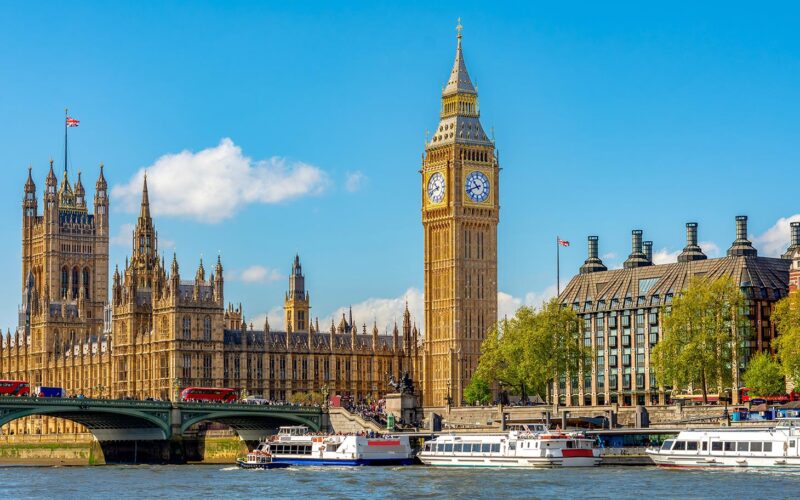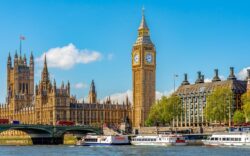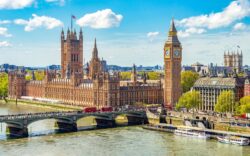In today’s issue:
- Trade-offs are a fact of life
- This is true in the public and private sectors
- Have we been making good spending choices? Or poor ones?
Trade-offs are a fact of life. For everything we do, we forgo something else we could have done instead.
From the simple things, such as what we buy – or don’t buy – at the shops, to life’s big decisions, such as whether to go into debt to fund university, or go straight into the jobs market instead, trade-offs are everywhere.
One could argue that our awareness of trade-offs is what makes us uniquely human. Within the natural and physical limits that govern us, we’re still free to choose our actions – though those choices can come with serious consequences. Animals, by contrast, operate largely on instinct, with little if any conscious deliberation.
Economists have a fancy term for trade-offs: opportunity cost. Because economists like to quantify things, sometimes for use in fancy models, they assign a number or price to everything.
Corporations employ economists to model consumer behaviour to try and maximise profit. Say you’re a UK supermarket and you want to best match your inventory to what consumers are actually going to buy. Well, that can only be done if the prices are right.
If apples are too expensive relative to oranges, then you’re going to run out of oranges and be left with apples. If fresh products are too expensive relative to frozen, then you’re going to have fresh products rotting on the shelves as the freezers empty.
As consumers, we may take such things for granted. But a successful, profitable UK supermarket chain probably employs a team of PhD mathematical economists who are constantly crunching all possible data to try and optimise inventory prices and quantities in order to meet consumer preferences and thereby maximise profit.
They’ll do so while taking regional consumption patterns into account, make seasonal adjustments, even adjust store-by-store to reflect the idiosyncratic preferences of the local population. If they do a good job, it’s a win-win for the company and consumers alike.
Now, let’s consider the public sector. As we know, the government spends a great deal of money. Much of that is raised through taxation, the rest through borrowing.
There are big-budget items such as the NHS and various forms of welfare benefits. There’s education and defence. There’s infrastructure maintenance, such as for the motorways and public facilities.
Much taxing and spending is also done at the council level, although much of that is mandated from Westminster. In all cases, however, funds spent on one policy or project can’t also be spent on another.
Opportunity cost is thus not only a fact of private life, but public.
Public trade-offs, whether large or small, are not generally made in the same way as the private. They’re subject to the vagaries of politics, rather than a focus on profit, or return on investment.
The lack of focus on profit is often cited as a reason why productivity growth in the public sector is so low relative to the private.
Bank of England Governor Andrew Bailey pointed out recently that UK productivity growth was historically weak and suggested that this was due to the relative growth of the public versus private sector in recent years.
I commented on this a few weeks back. Here is a relevant excerpt:
Mr Bailey has thus correctly identified the culprit behind the productivity puzzle. And none too soon, given that Britain’s relative economic underperformance has already lasted nearly a full generation.
But will the government even notice? Or will it “round up the usual suspects” instead and keep blaming capitalism and profit-seeking businesses for Britain’s economic woes?
If the government truly wants to go for growth, it needs to solve the productivity puzzle. It needs to stop growing the public sector at the expense of the private.
So far, there is no sign of that happening. The government has, however, recently drawn attention to what it claims may be some abuse of the welfare system, in particular for disability benefits.
In her Spring Statement, Chancellor Rachel Reeves said that disability benefits would be cut by some £4.6 billion. That’s not a small amount. As the Guardian reports.
Projections show that more than 3 million households will lose money as a result of the government’s welfare cuts, and an extra 250,000 people – including 50,000 children – will be pushed into relative poverty by 2029-30.
As you can imagine, many Labour backbenchers are up in arms about this. But Reeves insists that, due to deteriorating public finances, cuts are essential.
Spending cuts have a way of focusing the mind on opportunity cost in a way that increases don’t. The taxpayer may grumble if increases require higher taxes, but the recipients probably won’t think of the opportunity cost at all.
Now that spending cuts are in focus, it’s worth asking: what choices might we have made differently if we had considered opportunity costs all along?
As we know, UK energy bills continue to rise and are amongst the highest in the world. Is it thus worth asking whether the estimated £250 billion of spending on net zero since 2010 has provided a satisfactory return on investment?
Could that £250 billion been better spent on fixing the NHS and providing quality healthcare provision generally?
What about improving and expanding education provision?
What about cleaning up our rivers and fixing our dysfunctional water management infrastructure?
What about actually completing HS2, rather than running up huge costs in not completing it?
What about reversing the chronic decline in UK defence capabilities, such as the Royal Navy now having more admirals than ships?
£250 billion is a huge amount of money. It might have been enough to help make a positive difference for all of the above.
In any case, I don’t have the answers to those questions. But anyone complaining about proposed spending cuts should be asking them.
Oh, what might have been!
Hindsight is always 20:20 of course.
But weren’t we promised lower rather than higher energy bills?
How many times have we been promised that someone was going to fix the NHS?
What was Einstein’s definition of insanity again? Doing the same thing over and over and expecting different results?
If the PhD inventory and pricing optimisation team at a UK supermarket chain consistently made bad decisions, resulting in chronic losses, rather than profits, would they have been fired by now?
If not, would the chain in question have gone bankrupt?
I think you know the answers to both of those questions.
Until next time,

John Butler
Investment Director, Investor’s Daily
Mixed Messages
Bill Bonner, crossing the Atlantic on the Queen Mary II
Day two of our trip passed without incident. The ship is full, so the restaurants and bars also tend to be full.
Meals are eaten communally. That is, we sit at big tables and are obliged to talk to other travelers. We are not normally very sociable. But we almost always like people when we get to know them.
So far, we have met a librarian from England, a history teacher from Portland, Oregon, and a couple from Seattle. All of them were polite and well spoken. (We avoided touchy subjects – politics… religion… sex… and the decline of the late, degenerate empire.)
Meanwhile…
We seem to have been inadvertently added to a very special chat group. President Trump convened a pow wow to talk about his plan for a new currency.
On the call was Fed chief Jerome Powell, Treasury head Scott Bessent, J.D. Vance, Elon Musk and a lesser cast that we don’t remember. For an unknown reason, perhaps it was a mistake, we were included.
It is not every day that we get invited to join a secret White House policy meeting. Naturally we were thrilled to find out what the honchos were planning. We pass along the conversation to you… from memory.
Scott Bessent: Mr. President, we’ve got a couple of problems. Even with the great work that Elon is doing, federal spending is still higher this year than it was in Biden’s last year. We’ll end up with another $1 trillion deficit – at least. And we have the CBO (Congressional Budget Office) forecasting a lower GDP. We know that our policies will create a Golden Age, as you say. But it won’t happen overnight. And we have some important elections (mid-terms) coming up before voters see the gilt. 😕
Donald Trump: Don’t worry. The tariffs will take care of it. Beautiful word, ‘tariffs.’ The Fed is going to cut rates. And what with the tax cuts, and lower price of oil, we’re going to see growth like we’ve never seen before. 🔥💯🇺🇲
Jerome Powell: Mr. President, this may not be the best time to cut rates. We’re looking at elevated volatility and stubbornly persistent inflation. I think we should hold rates steady for a while. Besides, if we cut rates now it’s likely to signal that we’re not serious about fighting inflation.🤔
Donald Trump: Look, don’t worry about inflation. It’s going to go down tomorrow. Liberation Day. And we’re switching out of the dollar soon anyway. Nobody will care what the inflation rate is, because the dollar will be history.💪✊👍
Jerome Powell: What? 🤯
Donald Trump: Didn’t anyone tell you? We’re going to introduce a new electronic currency. It will be called the Trump. And we’ll convert all of that federal debt… what is it, up to $20 trillion now?… to Trump notes. We’ll pay off every penny in Trump notes. No more debt. Then, we’ll have a solid currency that everyone will trust. When we need more money we’ll just print up some more Trump Notes. No more borrowing. No more debt. And if the Fed doesn’t go along… I’ll rain down Hell on it.
Jerome Powell: Excuse me?
Donald Trump: You heard me. Houthis, Hamas, Iran – I’m going to bomb the crap out of them all. And I’m going to have some bombs left over… for the Fed, Canada, campus protesters, law firms that resist me… Rachel Maddow… Thomas Massie… I’m going to get that son-of-a-b!&@#… Hell is going to break loose on all of them… and any of these countries that try to get around our tariffs… or try to get together to fight back. I’ll bomb them too.
Elon Musk: Maybe we should back off some of this bombing talk. People are getting restless. And aggressive. They don’t like your policies so they attack my cars. 🚙🔥
Donald Trump: We’ll get even with them. They’re terrorists. We’ll round them up and deport them.✈✈✈
Elon Musk: But they’re US citizens. You can’t deport them. Where would you send them?
Donald Trump: I’ve got a deal with Budele… Dubele… whatever his name is in El Salvador. We pay them $10,000 for each one and send them as many prisoners as we want. And once you declare them terrorists, you don’t have to deal with liberal courts and the judges Obama appointed. Judges… Democrats… reporters… Canadians – they’re all terrorists. We’ll deport them all.
Elon Musk: But it’s happening all over the world. Those damned Chinese are selling more cars than we are. And we can’t deport Europeans from Europe… or deport people for not buying our cars.
Donald Trump: No, but we can bomb the hell out of them. 💣💣💣
Scott Bessent: Bomb Europe?
Donald Trump: Why not? They’ve been ripping us off for decades. They should have spent a lot more on their own defense. And they’ll be sorry they didn’t. It’s time we got even with them. Bomb them all. But we won’t have to. I’ll talk to them. We’ll make a deal. And if they don’t go along, we sanction them, tariff them, and bomb them. And maybe I’ll decide not to bomb them… or not to tariff them.
J.D. Vance: With all due respect, Mr. President, the strategic importance of this opportunity can’t be overstated. This is our opportunity to bomb the Hell out of Europe – the snobby, snooty leftist parasites. And we should nuke Greenland. Those bastards gave me a very ‘cool’ reception last week… ha ha. 💣🚀💣
A young, unidentified female voice: Yeah, and if it weren’t for us, they’d be speaking German.
Jerome Powell: Well, actually, many Europeans do speak German.
The meeting continued.
But we had to drop out. We had a dance lesson.
Regards,

Bill Bonner
Contributing Editor, Investor’s Daily
For more from Bill Bonner, visit www.bonnerprivateresearch.com



